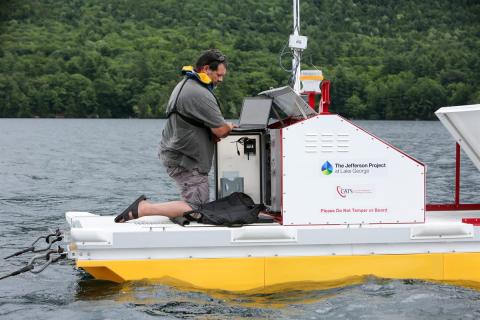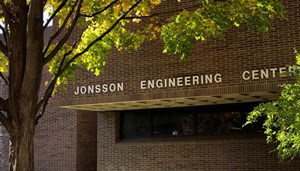
Rensselaer’s approach to sustainability combines research and regional engagement.
New York State has set some of the most ambitious climate targets in the nation. This has made our region a productive environment for sustainability research while generating a market for green energy technologies.
RPI’s Center for Future Energy Systems (CFES) has been designated a New York State Center for Advanced Technology, an investment in both energy research at Rensselaer and technology development and commercialization with New York industry that allows CFES to play a critical role in the success of our industry partners, particularly small and medium-sized enterprises. Together, they’re solving the problems that arise as we transition to clean energy.
CFES researchers are working to overcome the limitations of lithium-ion batteries with novel battery designs that are cheaper, less likely to catch fire, more energy dense, and made of more common materials that leave us less dependent on China for mining rare minerals and refining them. These include batteries based on magnesium, sodium, potassium, and calcium ions in aqueous electrolytes, as well as those with solid electrolytes to replace flammable organic liquid electrolytes. At the same time, CFES is working on the challenge of integrating renewable energy and storage into the grid.
Off campus, Rensselaer engineers collaborate with the interdisciplinary Jefferson Project at Lake George, part of our Darrin Fresh Water Institute. The Jefferson Project is a collaboration between RPI, IBM Research, and the Lake George Association that takes a sophisticated approach to understanding the impact of human activity on fresh water, and how to mitigate those effects. The project will celebrate its 10th anniversary this year.
The region is on track to become a center of energy innovation. We already have Plug Power developing fuel cells and moving into green hydrogen production. Ecovative, founded by RPI alumni, is using mushrooms to generate sustainable and biodegradable consumer products. And the Port of Albany is expected to be the first offshore wind tower manufacturing facility in the United States. With the support offered by New York State Energy Research and Development Authority (NYSERDA), the Capital Region continues to be an attractive place to research sustainability and cultivate energy-based industry.
